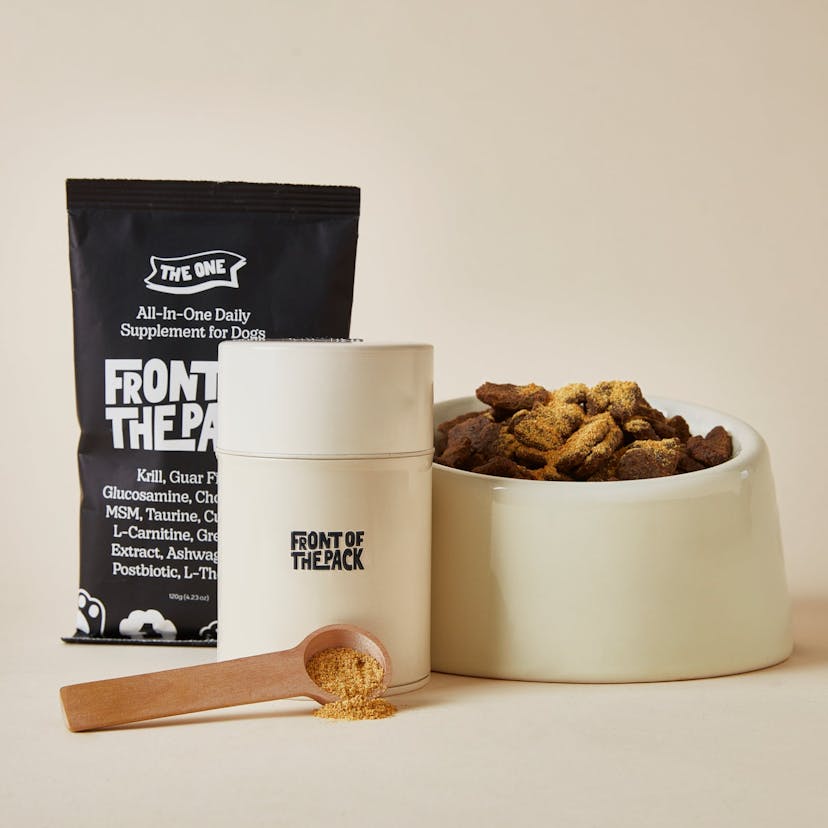Can Dogs Eat Blackberries? The Juicy Truth Every Owner Needs To Know
Blackberries. delicious little morsels of flavor that are as tasty as they are healthy. For people, blackberries are delightful ways to spice up pies, tarts, drinks, and more. Fortunately, dogs can happily enjoy these treats alongside us! Blackberries are safe for dogs to eat!

Now, it’s time for us to dive into the topic even more!
Are Blackberries Safe for Dogs?
The short answer is yes! Blackberries are safe for dogs!
However, before you go and buy a bushel of berries for your pup to chow down on, be sure to follow a few basic safety tips:
Start slow: Your dog may be allergic to berries, or they might not sit well with their tummy. Either way, you’ll want to feed blackberries in small amounts at first.
Find plain blackberries: If you wouldn’t eat them, don’t feed them to your dog. The best blackberries are fresh and plain.
Don’t feed your dog seasoned, dried, or canned blackberries.Wash the berries first: Whenever you get berries from the store, be sure to rinse them off before you feed them to your pup.
Blackberry Nutrition Facts
As far as treats go, blackberries are far from the worst. These delicious bites of flavor have very little sugar and few calories. This means that they can be given with a bit more frequency than other goodies..
Can Dogs Have Blackberries? The FAQ

To make things easier, we’ve rounded up some of the most commonly asked questions about giving blackberries to dogs.
Scroll on to learn more!
How Many Blackberries Can I Give to My Dog?
Like any treat, blackberries should be given in moderation. It’s hard to overdo it on blackberries, but even a bit too many can cause an upset stomach.
You don’t need many berries, and 2–6 individual berries will be enough for most dogs. Going over this limit may upset your dog’s stomach.
Which Berries Are Poisonous to Dogs?

In addition to blackberries, there are many other kinds of berries, but not all are suitable for dogs!
While humans may enjoy these delicious, juicy snacks, dogs can’t handle all of them. There are some berries that dogs should avoid, as they can cause symptoms ranging from upset stomachs to death.
Unsafe berries include:
- Baneberries
- Cherries
- Holly berries
- Juniper berries
- Pokeberries (alternatively spelled “poke berries”)
- Mistletoe
You’ll also want to prevent your pups from eating any wild berries you may find. There are a few different reasons for this, and the most obvious is that you’ll have a hard time identifying these wild berries.
However, you also have no way of knowing what these wild berries have been treated with. Many people will treat their yards with insecticides and weedkillers, and those toxins will leach into whatever grows in the area. If your pup happens to eat a berry from one of these lawns, those same toxins will end up in their tummy!
How to Serve Your Dog Blackberries
Of course, you can give your dog plain blackberries. Some dogs aren’t usually picky, and they’ll love the unique treat. There are, however, some other ways to give your dog a taste of blackberry.
1. Blackberry Pupsicle
Keeping your pup cool doesn’t have to be boring!
If you’re looking for a blackberry-packed way to keep your pup cool this summer, try out this amazing popsicle recipe.
To make these blackberry popsicles, you’ll need:
- A blender or food processor
- A freezer
- An ice tray or popsicle mold
- ½ cup of blackberries
- 2 sliced frozen bananas
- ½ cup creamy peanut butter
- ½ cup plain yogurt
Once your supplies are ready, follow along!
- Add blackberries to the blender or food processor and process them until they’re smooth. When this is done, empty the mix into a bowl and set it aside.
- After cleaning out the pitcher, add the bananas, peanut butter, and yogurt. Blend the ingredients until they are smooth. The ideal texture will resemble soft serve ice cream.
- Add the blackberry purée to the mixture and mix.
- Pour the resultant mixture into trays or molds, then freeze them for four hours or until solid.
Once they’re made, these delightful popsicle bites will last up to a month in the freezer.




